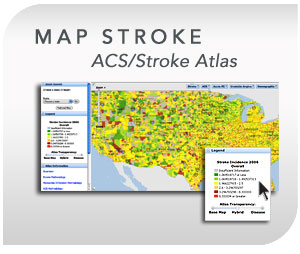Diffusion-Weighted Magnetic Resonance Imaging May Underestimate Acute Ischemic Lesions
Stroke Reports Tuesday, February 26th, 2013STROKEAHA: February 14, 2013
Background and Purpose—Diffusion-weighted imaging sometimes fails to detect early computed tomography (CT) ischemic lesions in acute ischemic stroke patients, which is termed reversed discrepancy (RD), but its clinical significance remains unclear. The incidence and factors associated with RD in acute ischemic stroke patients within 3 hours of onset were examined.
Methods—A total of 164 consecutive patients with acute anterior circulation ischemic stroke was enrolled. All patients underwent both magnetic resonance imaging and CT within 3 hours of onset and before treatment. Their early ischemic changes were evaluated with the Alberta Stroke Program Early CT Score. RD was defined as present when the early ischemic change detected on CT was not seen on diffusion-weighted imaging. Read more




























